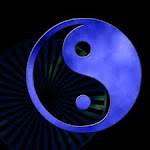Poker pros are action freaks. The don't just play poker, they are so easily bored during the game that they have to play games within games. Side bets, Proposition bets, insurance, running it twice, etc.
Double-flop Hold'em
An alternative to the traditional formats is, as the name suggests, to have two flops (and turns and rivers), now they call it "running it twice". In this game the pot is split between the winner according to each board, although it’s probable that someone somewhere has tried to play double flop hi-lo! The game can also be played with variations of hole card numbers and discards, which make things a lot more interesting. Two flops introduces key decisions like the choice between making an all-out attempt to win on one board (and perhaps scoop an opponent attempting to do the same) or trying to have some shot at both, or choosing between a combination of made hands and draws when you come to discard.
How does Insurance work?
Let's work with other numbers first just so I can be sure I'm doing all the math correctly. Let's say you're a 75% favorite. You win 75% of the time and lose 25% of the time, so you are a 75:25 favorite, or 3:1.
Let's make the insurance fully fair right now, so the rate will be 3:1 as well. We'll play for $10.
If you win the pot, which you will do often, you pay the $10. If you lose the pot, which you will do less often, you get paid 3 times that amount, or $30.
The way you can remember is that you pay the insurance the opposite of the pot -- win the pot, lose the insurance, but lose the pot and you win the insurance. If you're a favorite, you will win more than you lose, so you should pay the smaller amount when you win the pot. When you lose the pot in the rare situations, you then get a consolation prize that's bigger than what you would have paid. In other words, more frequent event involves less money and the less frequent event involves more money.
For 70%, it's 70:30, which is the same as 7:3, or (7/3):1, which is 2.33:1. It's just division. If you are giving insurance and are not in the pot, remember things are reversed from above. If the guy wins the pot, you get some of it. If he loses, you have to pay him. So, when you make money, it's the '1' in the ratio. When you pay out, it's the '2.33' in the ratio. To make it in your favor, just reduce your pay out, like give 2:1 odds.
Hold'em hi-lo
As you might imagine, in the search for different variations, hold’em games have often been played hi-lo as well. Crazy pineapple and Tahoe in particular allow for greater degrees of flexibility in going both ways. In the latter game A-A-2 is obviously the dream combination, although A-2-3 also allows for flexibility against being counterfeited for low. Since it is much harder to scoop by winning in both directions in variations of hold’em hi-lo which have a qualifier of 8 or better (i.e. the low hand must be five differently-valued cards of 8 or below), it is important to watch how the board develops. The board can make the difference between a chance to win everything or realizing you’re only playing for half and then playing accordingly.
















